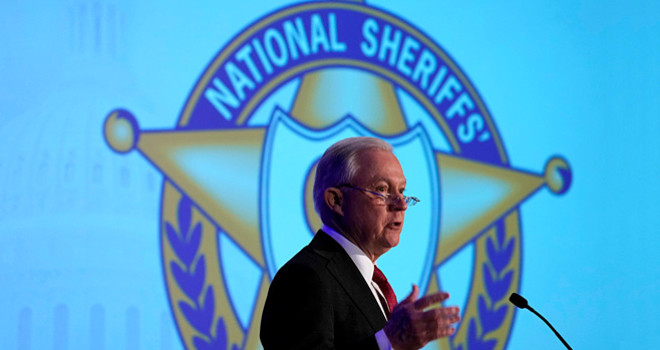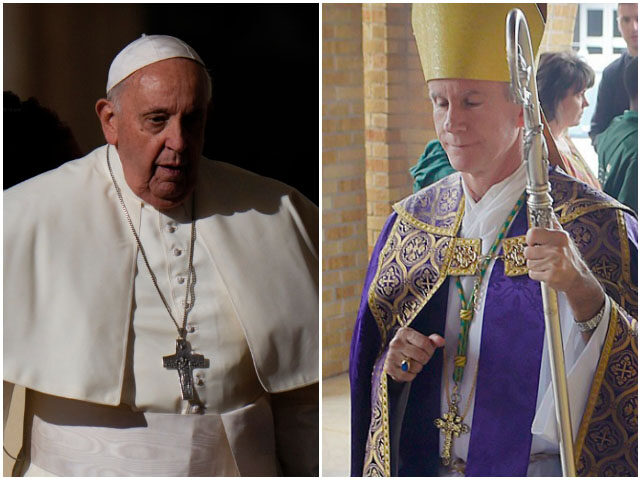President Trump’s Decision to Defund International Planned Parenthood Has Curtailed the Global Abortion Agenda
March 7, 2018Msgr. Charles Pope: The Cardinal Virtues: Temperance
March 7, 2018
By James Kalb, Crisis, Magazine, March 7, 2018
 Catholics favor government that promotes the common good, for example by fostering conditions that favor authorities such as families, local communities, and the Church as they carry on their work.
Catholics favor government that promotes the common good, for example by fostering conditions that favor authorities such as families, local communities, and the Church as they carry on their work.
How government does that, and whether it does it at all, depends on how it understands the common good and what furthers it. So the treatment the Church can expect mostly depends on whether influential people think about things in the same way as Catholics do. If people who run things believe the Church’s work is beneficial, because she has a grip on important realities, we can expect good treatment. Otherwise, not so much. After all, if a worldwide organization makes huge claims, why not do all you can to weaken and discredit it if you’re convinced the claims are false and its view of humanity distorted?
After the Second World War Catholics came to expect that liberal principles would protect the freedom of the Church to carry on her mission, and of ordinary Catholics to follow conscience in daily life, whether Catholic views were widely accepted or not. That expectation hasn’t panned out. The freedom of the Church and her members is under serious threat in an ever more radically secular society, directly and through the death of a thousand impositions and seductions.
The threats are varied. One is loss of employment or even criminal prosecution for presenting ordinary Christian views on human nature and morality. Another is the growing threat, due to opposition to conscience protections, to the ability of Catholics to engage in activities as varied and important as medicine, education, and adoption and foster care services. Still another is the growing threat to the integrity of the family, a threat ultimately due to the hardening belief that “family” is simply a legal category that can be modified or abolished when politically convenient.
A more general threat is the absorption of the Church and her members into an ever more comprehensively organized secular society motivated by its own very demanding social and moral ideal. If you work for a large institution, you will be subjected to demands to sign on to causes such as transgenderism and the equal worth of homosexual relationships. If you engage with the electronic media, which is how people engage with public life and even friends and family today, you’ll be continually awash in images, soundbites, and narratives that propagate a radically anti-Catholic understanding of life and the world. And if you send your children to a mainstream school they’ll be indoctrinated into the views that have become official in today’s society and trained for an imagined future that puts those views into effect yet more completely.
A certain independence from popular culture and mainstream public life has therefore become necessary for us. But independence is ever harder to maintain. One reason, touched on above, is the pervasiveness of electronic media and bureaucratic and market relationships. Another is the consequent weakening of immediate personal connections such as family, friendship, and local community. Still another is the principle of government responsibility for human relations that grew out of the liberation movements of the 1960s.
If people are determined they can drop out of pop culture and even find a way of making a living that doesn’t require compromise of conscience. If they do so family relationships and local social connections are likely to become more important to them. State responsibility for human relations is a bigger problem, at least potentially, because social transformation in the interests of “inclusion” and so on has taken on an all-encompassing religious quality that is thought to justify almost any degree of compulsion.
After all, we live in a liberal society, and the goal of liberalism is equal freedom, so the laws should do what’s necessary to establish freedom and equality as a day-to-day reality for everyone. Anything else would be collusion in oppression.
All that sounds good to people who are used to hearing such things, but the effort must somehow deal with a fundamental problem in liberalism: freedom and equality—however valuable in their place—don’t work as ultimate goals. Freedom for what? Equality in what respects? To answer those questions we need to recognize authoritative higher goods. But that can’t be done without abandoning the view that takes equal freedom as its guiding principle—in other words, liberalism—in favor of a system based on the higher goods and the vision of the good life they define.
There is of course an official solution to the problem, one that inevitably favors the people who run things. We live in an age of global markets and transnational bureaucracies, and the people who dominate such institutions believe they should control everything and answer only to each other. That is what—for example—the European Union is all about. The rest of us are expected to listen, believe, obey, and periodically express support for what is supposedly being done on our behalf.
With that in mind, the official view is that freedom and equality don’t demand devolution of power or respect for civil society or the beliefs and traditions of the people. Instead, they require the people to be freed from traditional dimensions of human identity. Family, religion, and cultural community must become subjective matters of choice and opinion rather than authoritative institutions so that people can become interchangeable economic units and so become equally free.
The result, of course, is elimination of durable functional human connections other than global markets and transnational bureaucracies, and consolidation of power in the hands of billionaires and bureaucrats. Our rulers have no problem with that, and the people are expected to like it because it gives them a life of careerism, consumerism, and free choice among private pursuits that don’t affect the interests of those higher up. That is the way of life political and social liberalism now insists on. It is its version of the good life.
With that in mind it’s evident that Catholics who support current tendencies are remarkably wrong-headed. What they should support instead is a less comprehensively organized society, or one organized on very different principles. Those alternatives have generated serious Catholic responses to the current situation.
The first tends to merge political Catholicism into classical American conservatism, the second to revive Catholic integrism. Not surprisingly, the first has been dominant in this country. It seems easier to appeal to principles rooted in local traditions than attempt to transform political culture in a direction that is historically very foreign. Many American Catholics have therefore favored a conservative liberalism that stresses constitutional freedoms within a framework of traditional values, and understands God as the ultimate source of rights. Conservative Catholic intellectuals have tended toward a generalized version of the same thing that emphasizes the independence of civil society and calls for ordered freedom and equality within a system of natural law understandings intended to be acceptable to Catholics, secular people, and other major religious traditions.
Such proposals go nowhere. Outside a small conservative bubble there are vanishingly few politicians or political commentators who care about the American tradition of constitutional liberty under God. And we’ve recently seen that appeals to the Anglo-American legal tradition—of which the American tradition of ordered constitutional liberty is part—are increasingly viewed as illegitimate and even racist. After all, why should people from other traditions care about that one? Are theirs less worthy?
As for natural law, from a practical standpoint it’s basically a front for conservative Catholicism. Non-Catholic natural law thinkers do exist, but most of them eventually convert. And in any event respectable public opinion considers the view intolerably sexist, homophobic, transphobic, and otherwise reactionary.
So what to do? The American political tradition once accepted traditional limitations on the logic of equal freedom that left space for Catholicism. Those limitations have disappeared, and appeals to the increasingly irrelevant and discredited Founding Fathers aren’t going to bring them back. So Catholics must return to basics: the nature of the common good, how it works its way into social life, and a realistic grasp of the social and political world in which we now find ourselves. That won’t necessarily tell them how to win, but it will at least ensure that they are engaging with the real world.
___________________________________
James Kalb is a lawyer, independent scholar, and Catholic convert who lives in Brooklyn, New York. He is the author of The Tyranny of Liberalism: Understanding and Overcoming Administered Freedom, Inquisitorial Tolerance, and Equality by Command (ISI Books, 2008), and, most recently, Against Inclusiveness: How the Diversity Regime is Flattening America and the West and What to Do About It (Angelico Press, 2013).
(Photo credit: Yuri Gripas / Reuters)







